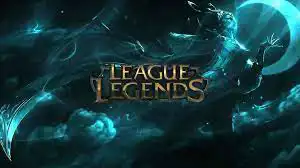League of Legends Toxic Behavior
The League of Legends community is known for its unique, intense dynamic, acting as both a home and a battleground for players. The cutthroat competition often tests friendships, straining connections as the stakes rise. However, the environment can enable toxic behavior, frequently stepping over the line into abuse.
As a popular multiplayer online battle arena game, League of Legends fosters a culture where players are driven by an overwhelming desire to win. This drive can lead to hostility when things do not go as planned, causing conflicts within the teams.

Players resort to keyboard warfare, lashing out on fellow players for petty reasons. This practice chains into an endless cycle of hostility, spreading beyond the scope of the game. It is a prime example of how a virtual environment can impact social behavior.
League of Legends and Reality Collide
One player recalls how the game's toxicity followed into the real world. Once, during a casual conversation with a friend, this unnamed player found himself confronted by the same hostility he often encountered in the game.
Suddenly, the friend launched into an angry tirade akin to rage-filled game chats. It was an abrupt and unnerving experience that made him question how deeply the game's toxicity had seeped into their lives.
This incident made it clear that the negative interactions were no longer limited to the game. The hostility had crossed over from the virtual realm, seeping into everyday verbal interaction.
It begs the question, how deep does this toxicity run in their lives? Does this game-driven hostility extend into player's social circles, influencing their approach to real-life conflicts?
The Impact of Toxic Gaming Behavior
While some might argue that it's just a game, such interactions can lead to lasting effects. The harsh reality is that toxic gaming behavior can transcend the virtual environment, influencing the individuals involved significantly.
Under the guise of a virtual avatar, players often forget etiquette, launching into unreserved behaviors. Respect and acceptance take a backseat as hostility and anger surge, opening a window to the darker side of human nature.
Such toxic interaction leads to a pervasive negative environment overshadowing the fun aspects of the game. The incessant bullying and aggression make the game less enjoyable and more stressful, ultimately defeating the purpose of the platform.
This negativity goes beyond the game, creeping into the player's offline life and dictating their interactions with others. A game that should be a stress-reliever turns into a minefield of potential conflict and aggression.
Addressing In-Game Toxicity Systematically
Acknowledging the problem is a significant step in the right direction. Game developers and community administrators are now focusing on combating toxicity in-game more than ever.
Efforts have been made to establish robust reporting systems and implementing stiffer penalties for toxic players. It is an ongoing battle, but with support from the community, strives are starting to make a difference.
It is not easy to change a culture, especially if that culture is woven into the very fabric of the game. But with a collective contribution from all players, positive change is possible.
Initiating open discussions can also help normalize the conversation around toxic gaming. Establishing standards for game behavior, reporting, and disciplinary actions creates a safer environment for all players.
Players Role in Creating a Positive Culture
Players have a critical role in fostering a positive gaming environment. Maintaining decorum, respect, and reporting negative behavior can go a long way in curbing toxic behavior.
Choosing friendly game banter over heated aggression can diffuse tension on the battlefield. After all, at the end of the day, it's mostly about having fun and connecting with people around the globe.
Players' commitment to a healthier atmosphere will slowly but surely distance the game from its toxic reputation. The shift would not only revolutionize the League of Legends environment but could potentially influence the broader gaming culture as well.
All in all, it will require a combined effort from game developers and the community to tackle the toxicity issue effectively. Awareness, accountability, and action are the key steps towards achieving a more welcoming, friendly gaming community.